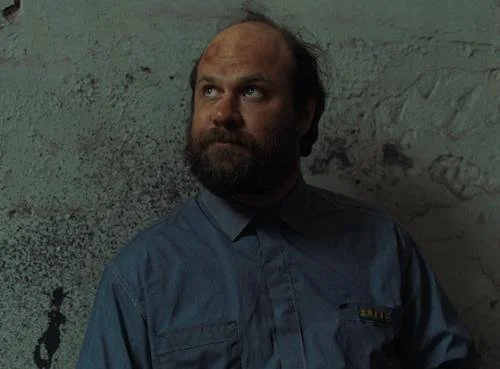The Delinquents
Written by Andreas Babiolakis
It wasn’t that long ago that I, a millennial, really thought about my place in the world and realized that I likely would never be able to retire. Not in this economy. Not in this gig-based climate. Not with the rise of inflation. Not with all the inner machinations of powers that are beyond my control. It is not just me but the majority of my peers. The formerly-obtainable reality of working until we earn our permanent solace from the grind just isn’t feasible or even possible anymore. With that in mind, it’s a tragedy that we’ve had to basically laugh and shrug off. It’s yet another part of the game of life that has continued to bamboozle its players for millennia, and it’s just a new element that we’re having to adjust to. It’s hard not to think that Argentinian director Rodrigo Moreno had this notion in mind when creating his latest feature film The Delinquents: a dramedy epic that places banker Morán (Daniel Elías) in a position to determine his own fate: the possibility to double his earnings before retiring as to be more comfortable in life. Morán most certainly doesn’t view his job as his life but as a prison. The bank is not his home, nor are fellow bankers his family. He intends on splitting and for good.
Once Morán reveals his theft of company money to his coworker Román, the plan is set in place: Román will get a cut of the cash if he conceals the total amount while Morán is in jail once he turns himself in. Prison isn’t that dissimilar to a life-draining work environment in The Delinquents, so the concept rings true as a bleak joke of sorts. The concept of dark comedy plays out once Román faces Morán’s backlash on his behalf, only to reap the fruits of the latter’s labour: the freedom that both only ever dreamed about. Suddenly, there’s a message in there somewhere about those who benefit from the work of others, and we’re back to viewing The Delinquents as an allegory of the common workplace in the twenty-first century: all work and no play for most, and smooth sailing for very few. Román begins trying to find a “new life” in other parts of his existence, and this leads to his abandonment of his wife for the free-spirited pixie of a woman named Norma (Margarita Molfino). Reading these characters and their storylines as metaphors makes The Delinquents work best, because this all may seem like our reality, but the majority of this film’s three-hour runtime is devoted to these satirical symbols of modern-day career life. Taking this film at face value will provide you with lots of fun but you may find these characters are driven by their externalized, readable traits rather than what makes them tick as individuals.
The Delinquents serves as comedy through the tears when it comes to the imbalances of work-life culture in the modern age.
There’s something here about fortune being only one part of human existence, especially when heartlessness is arguably the bigger vice in life: we cannot help it if we are poor, but we can always aim to be good-natured people. Moreno’s genre-smushing affair is exciting, enriching, and quite a riot that feels like a rom-com, heist, and personal drama all at the same time. It is unhinged by conventions, but at the same time, it does cater to enough tropes that you can identify these qualities within the film, perhaps to best relay these sentiments about the complexities of human decency and the bitterness of standard living conditions. It doesn’t go quite as full-throttle on the poignancy of its sociopolitical allegories like, say, Bong Joon-ho’s Parasite, but Moreno’s film is also far less angry about the cards that most of humanity is dealt. The Delinquents is all about fantasies, and as such it is framed with lightness as opposed to disappointment. If Moreno’s film can be our escape for a little while, then he has done his job. Had the film been shorter with this thematic timbre, then maybe The Delinquents wouldn’t be fleshed out enough to convey what it needs to. Because Moreno keeps at it for over three hours, The Delinquents covers enough ground to be a strong satire, a rare epic that is funnier than it is grandiose, and Argentina’s submission for Best International Feature Film at the Academy Awards; this crowd-pleaser may make enough noise at the right time for it to be considered, so keep an eye out for this wild ride right away and especially during the awards season.
Andreas Babiolakis has a Masters degree in Film and Photography Preservation and Collections Management from Ryerson University, as well as a Bachelors degree in Cinema Studies from York University. His favourite times of year are the Criterion Collection flash sales and the annual Toronto International Film Festival.






